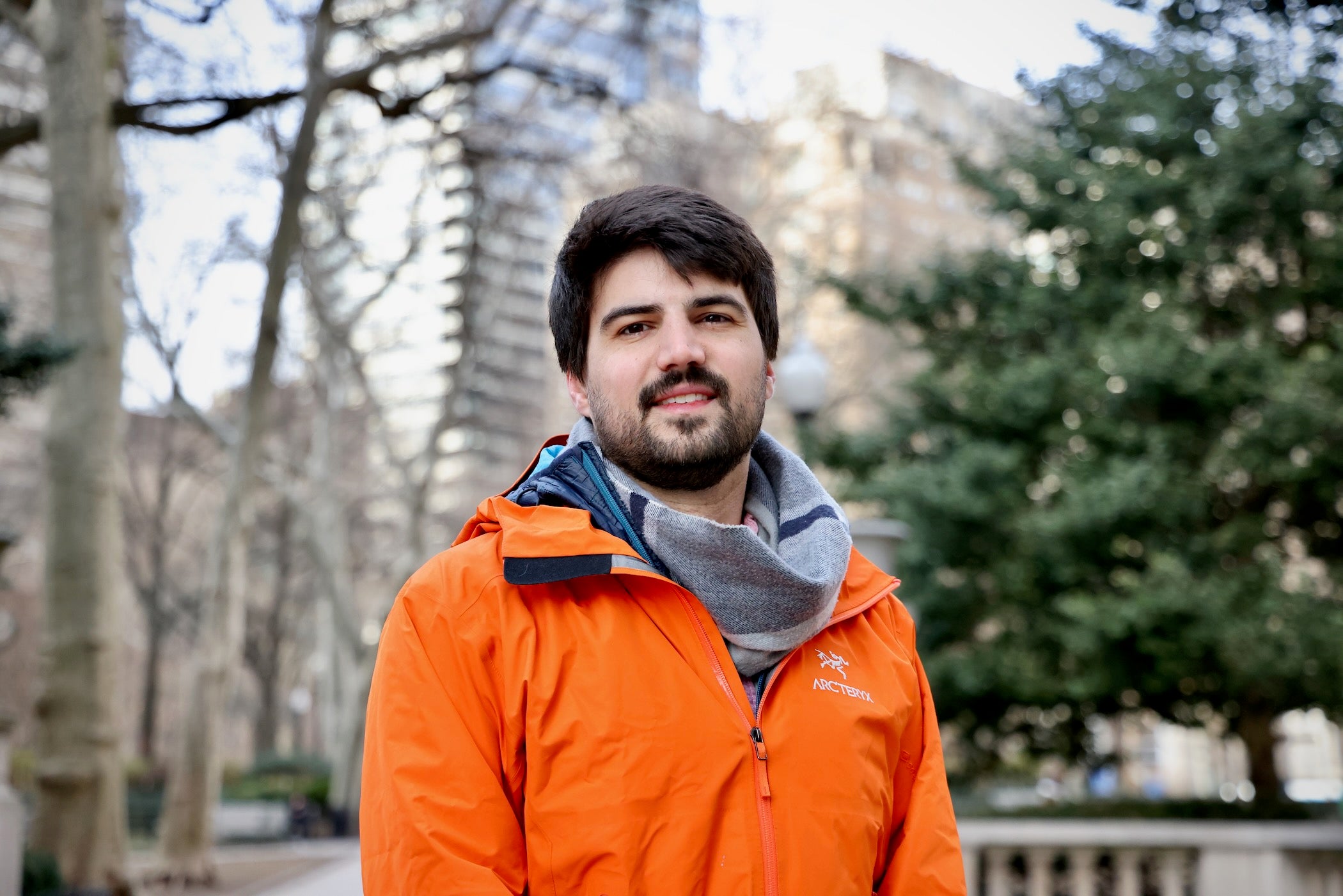Christopher Large, an evolutionary genomicist at the University of Pennsylvania who studies how DNA changes over time, is also on a postdoctoral fellowship funded by the NSF. He said faculty research jobs at universities are already scarce, and the chaos could lead to a loss of scientists from the U.S.
“So few people that actually get PhDs are able to go on to get faculty positions,” Large said. “But I think this has made them become probably even more scarce, at least in the near future, and potentially opens up the possibilities of a lot of … American postdocs looking abroad to places like Europe.”
 Chris Large is a postdoctoral researcher at the University of Pennsylvania with a grant from the National Science Foundation. (Emma Lee/WHYY)
Chris Large is a postdoctoral researcher at the University of Pennsylvania with a grant from the National Science Foundation. (Emma Lee/WHYY)
Bezia Lemma, a postdoctoral researcher at the chemical and biological engineering department at Princeton University, said that instead of doing his research on what happens when baby organisms develop from embryos, he had to spend a week talking to other researchers, reporters and lawyers about whether this research would violate Trump’s executive order.
“One wants to just ignore this and focus on important research. And I’ve got a newborn baby and a terrific project which I’m wrapping up. But to another extent, you’re not really allowed to ignore it,” Lemma said. “Many of us have families. And so small fluctuations in funding are quite serious. We’re still young enough to have financial instability, but we’re old enough to really have some career mobility and … be making major … scientific breakthroughs.”
He said even though the NSF has restored access to the research funding, it is still reviewing all grants to see if they comply with the executive order against “diversity, equity, and inclusion,” and he does not know if it will take days, weeks or months.
“It’s … unclear to me what was intended here, right? This is a particularly insidious way to cause … American scientists to just leave a tremendous amount of American scientific advances on the table,” Lemma said.
He said that while he and other early career American scientists are worrying about whether they still have jobs, their counterparts in other countries can keep doing research and discuss their progress.
Scientists also wonder how the executive order against “diversity, equity, and inclusion” will work, when current U.S. law requires the National Science Foundation to consider whether a research project will, in part, expand “participation of women and individuals from underrepresented groups.”
When the NSF decides whether to fund a project or not, it has considered what is called the “broader impact” of research going back many decades. Nature has reported that now, phrases like “broadening participation” or “women” or “people of color” would lead to a grant being flagged.
Cultural anthropologist Julia Barnes, who lives in Pennsylvania but is affiliated with the University of Tennessee, Knoxville, said she does not see how the field of cultural anthropology will survive with this kind of screening criteria, when one of the goals of the field is to “to make the world safe for human differences.”
“All of these phrases make, essentially, anthropology, cultural anthropology impossible to do because it is the study of cultural difference and advocacy and power and balances and it fits with the NSF statutory mission quite well. At least it has up until this point,” Barnes said. “Science should serve everyone. And I’m studying how to best make that happen … But that’s exactly what it seems that they’re trying to cut right now.”
